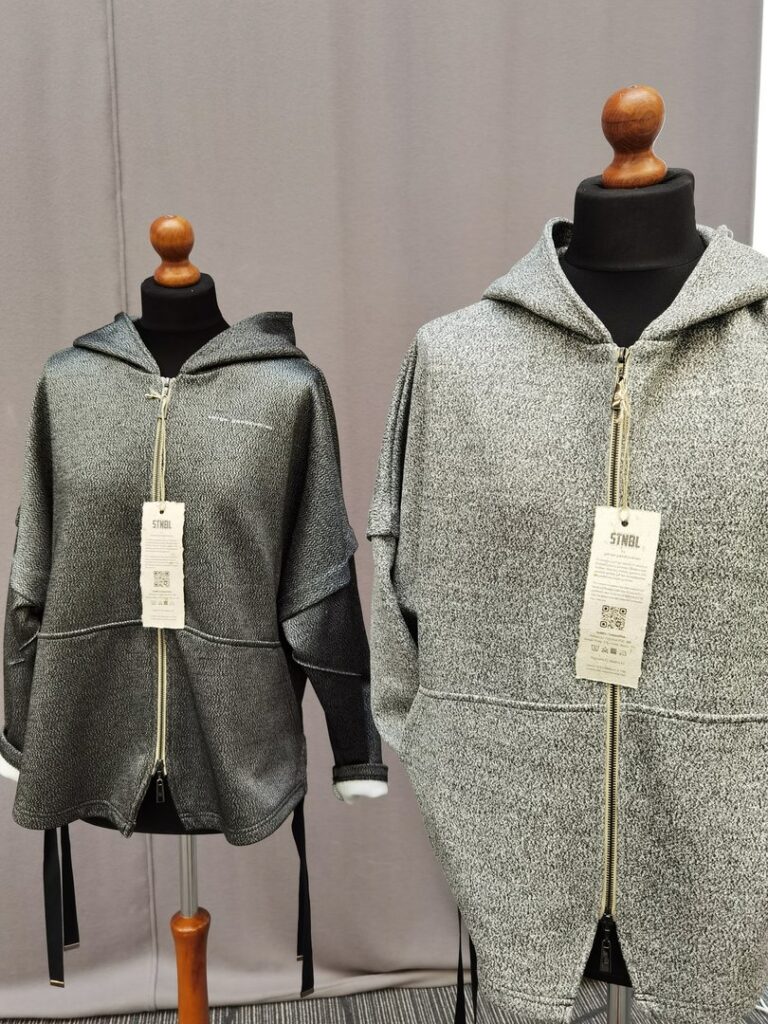ECO TEXTILE DEVELOPMENT
Eco-Design for a Greener Tomorrow
Our work in eco-design is setting new benchmarks for the textile industry. We are actively developing biodegradable and natural fiber-based materials as alternatives to conventional synthetic textiles. By leveraging fibers like organic wool, hemp, and plant-derived thermoplastics such as polylactic acid (PLA), we are reducing the environmental impact of textile production while maintaining high performance standards. Environmentally friendly organic chemicals are applied for innovative finishing of the fabrics as well.
Sustainable Materials Development
In collaboration with our industry partners, we are creating fabrics from biodegradable and renewable sources. These materials not only lessen the ecological footprint but also offer a sustainable alternative to the synthetics that currently dominate the market. Our focus is on creating textiles that are both environmentally friendly and durable, ensuring they meet the demands of modern consumers.
Eco-Friendly Textile Finishing
We are committed to reducing the negative effects of textile processing through the use of environmentally friendly organic chemicals. Our research includes innovative finishing techniques that minimize environmental impact while enhancing the functional properties of the textiles. This includes exploring energy-efficient solutions and non-thermal plasma treatments that further decrease the ecological footprint of our processes.
Low-Pressure Plasma Technology: A Sustainable Solution
One of our key areas of innovation is the application of low-pressure plasma technology in textile finishing. This advanced technique allows us to modify the surface of natural fibers, such as wool, to improve their dyeability, hydrophilicity, and overall performance without the use of harmful chemicals.
Research Highlights:
Improved Fiber Properties
Through low-pressure plasma treatment, we have enhanced the surface characteristics of natural fibers, resulting in textiles that are more durable, colorfast, and hydrophilic. This process also reduces the need for water and chemicals in dyeing and finishing, making it a more sustainable option for textile production.
Energy Efficiency and Reduced Environmental Impact
Our research demonstrates that low-pressure plasma technology can significantly lower the energy consumption of textile finishing processes. This not only reduces costs but also aligns with global efforts to decrease the carbon footprint of industrial manufacturing.
Circular Economy in Textiles: Closing the Loop
We are actively engaged in projects that promote the circular economy within the textile industry. By focusing on the reuse, recycling, and sustainable disposal of textile products, we are contributing to a more sustainable future for fashion and textiles.
EUREKA Project: Eco-Design Casual Garments
As part of our commitment to the circular economy, we are involved in the EUREKA project, which focuses on creating casual garments from biodegradable and natural fibers. This project, in partnership with companies from Lithuania and the Netherlands, aims to develop eco-designed fashion that adheres to circular economy principles.



